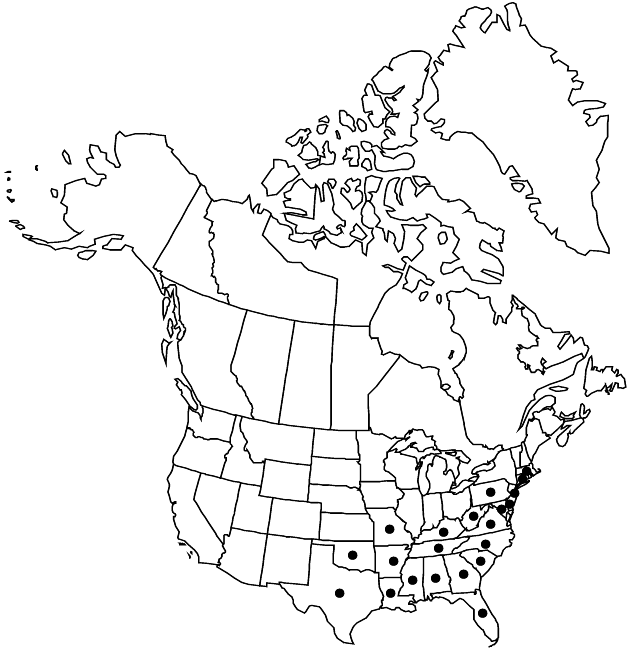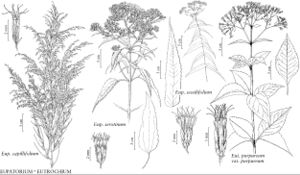Difference between revisions of "Eupatorium capillifolium"
Mem. Torrey Bot. Club 5: 311. 1894.
FNA>Volume Importer |
imported>Volume Importer |
||
| (5 intermediate revisions by 2 users not shown) | |||
| Line 8: | Line 8: | ||
}} | }} | ||
|common_names=Dogfennel | |common_names=Dogfennel | ||
| − | |basionyms={{Treatment/ID/ | + | |special_status={{Treatment/ID/Special_status |
| + | |code=F | ||
| + | |label=Illustrated | ||
| + | }}{{Treatment/ID/Special_status | ||
| + | |code=E | ||
| + | |label=Endemic | ||
| + | }} | ||
| + | |basionyms={{Treatment/ID/Basionym | ||
|name=Artemisia capillifolia | |name=Artemisia capillifolia | ||
|authority=Lamarck | |authority=Lamarck | ||
| + | |rank=species | ||
| + | |publication_title=in J. Lamarck et al., Encycl. | ||
| + | |publication_place=1: 267. 1783 | ||
}} | }} | ||
|synonyms= | |synonyms= | ||
| Line 35: | Line 45: | ||
-->{{#Taxon: | -->{{#Taxon: | ||
name=Eupatorium capillifolium | name=Eupatorium capillifolium | ||
| − | |||
|authority=(Lamarck) Small | |authority=(Lamarck) Small | ||
|rank=species | |rank=species | ||
| Line 49: | Line 58: | ||
|publication title=Mem. Torrey Bot. Club | |publication title=Mem. Torrey Bot. Club | ||
|publication year=1894 | |publication year=1894 | ||
| − | |special status= | + | |special status=Illustrated;Endemic |
| − | |source xml=https:// | + | |source xml=https://bitbucket.org/aafc-mbb/fna-data-curation/src/2e0870ddd59836b60bcf96646a41e87ea5a5943a/coarse_grained_fna_xml/V19-20-21/V21_1163.xml |
|tribe=Asteraceae tribe Eupatorieae | |tribe=Asteraceae tribe Eupatorieae | ||
|genus=Eupatorium | |genus=Eupatorium | ||
Latest revision as of 20:08, 5 November 2020
Perennials, 50–200 cm. Stems (from short caudices) multiple, branched distally, puberulent throughout. Leaves opposite (proximal) or alternate (nodes often appearing leafy because of development of leaves on lateral buds without axis elongation); sessile; blades (often ternately lobed) or lobes linear, 5–100 × 0.2–0.5(–1) mm, bases ± cuneate, margins entire (strongly revolute), apices rounded to acute, faces glabrate, gland-dotted. Heads in dense, paniculiform arrays. Phyllaries 8–10 in 2–3 series, oblong, 0.5–2.5 × 0.2–0.5 mm, apices acuminate and mucronate, abaxial faces glabrous or glabrate, not or little, if at all, gland-dotted. Florets 5; corollas 2–2.5 mm. Cypselae 1–1.7 mm; pappi of 20–30 bristles 2–2.5 mm. 2n = 20.
Phenology: Flowering Aug–Oct.
Habitat: Old fields, open sites, roadsides, flatwoods
Elevation: 10–300 m
Distribution

Ala., Ark., Conn., Del., Fla., Ga., Ky., La., Md., Mass., Miss., Mo., N.J., N.C., Okla., Pa., S.C., Tenn., Tex., Va., W.Va.
Discussion
Selected References
None.
